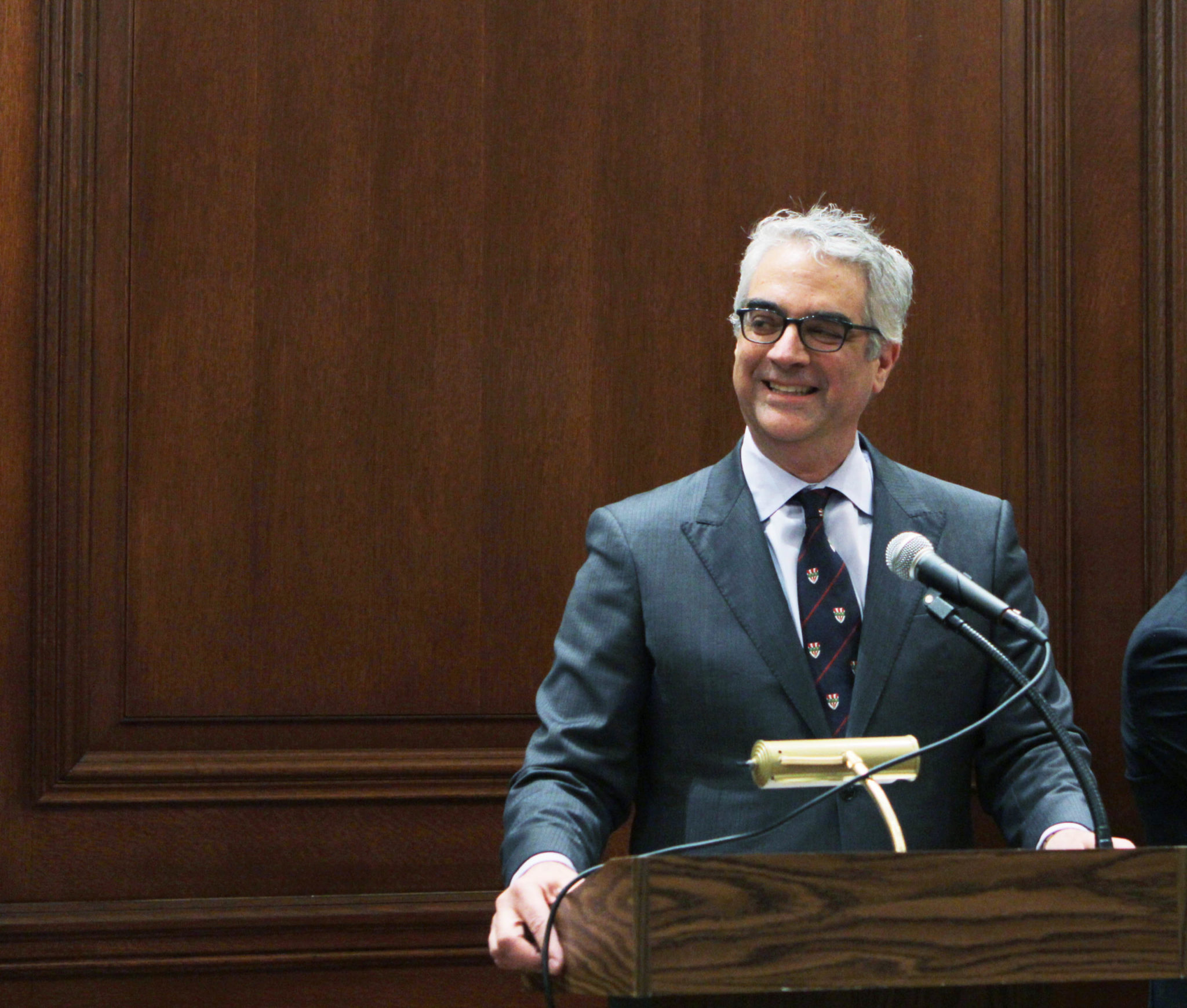Christakis discusses book on pandemic impacts in Buckley talk
Professor Nicholas Christakis discussed his book on the long-lasting impacts of the pandemic with the Buckley Program on Thursday afternoon.

Yale Daily News
On Thursday afternoon, Sterling Professor of Social and Natural Science Nicholas Christakis ’84 spoke to students in the William F. Buckley Jr. Program over Zoom about his book, discussing the scientific and social impacts of the COVID-19 pandemic.
Christakis’ book, “Apollo’s Arrow: The Profound and Enduring Impact of Coronavirus on the Way We Live,” was published in October 2020. The talk was moderated by Jasper Boers ’22 and Putt Punyagupta ’23. Boers, student president of the Buckley Program, said that Christakis’ book is currently being updated. In his talk, Boers emphasized that Christakis was engaged online, especially on Twitter, with updates and analysis on the COVID-19 pandemic.
“Ideally, we want to give as wide an audience as possible a really informed perspective on COVID,” Boers said. “The point of the talk is to give members of the Yale community a chance to interact with and ask their questions to experts.”
Christakis started his talk by describing the predictability of the COVID-19 pandemic. He said the pandemic was foreseen by Chinese and Italian scientists in early 2020, and that they forecasted that COVID-19 would become a worldwide pandemic.
He continued to highlight the universality and inevitability of plagues such as COVID-19 on a broader historical scale.
“Plagues are in the Bible. They’re in the ‘Iliad,’” Christakis said. “What happened in 2020 was not new to our species. It was just new to us.”
Christakis talked about the three phases a pandemic would go through: the immediate, the intermediate and the post-pandemic phases.
He predicted that the immediate phase — in which people either become infected with the virus or receive a vaccine — would last through 2022. The intermediate phase — which he described as the “mess” left behind, includes long-term impacts on education, business and health — would last until 2024, he said. Christakis then described the post-pandemic phase as a “little bit of a party,” similar to the freedom many felt during the 1920s.
“People who’ve been cooped up for so long will relentlessly seek out social interactions,” Christakis said.
Continuing on the social impacts of the pandemic, Christakis spoke of the social effects COVID-19 has had on the public.
He spoke about the economic losses caused by the pandemic, pointing to former Treasury Secretary Larry Summers’ comment that COVID-19 is a “$16 trillion virus.” Christakis added that many people still may not be directly experiencing the full extent of the pandemic’s economic losses because they borrowed money to get through economic difficulties.
Christakis continued to stress that the economic loss was not the government’s fault, but rather, the nature of pandemics themselves.
“This is what happens during times of plague,” Christakis said. “People withdraw from social interactions and economies require social interactions.”
However, Christakis added that he does not think the government was completely without fault. He condemned the current state of the nation and its inability to work together in a pivotal time, describing the effort as “pathetic.”
He criticized the Trump administration for not taking the pandemic seriously in its early stages, and also broadly criticized the politicization of science and the increasing association between science and the “elite.”
“There’s a kind of anti-elitist sentiment right now,” Christakis said. “But this has been pasted into a suspicion of scientists. Scientists are seen as just another elite that wants to rule us and tell us what to do. … You don’t need to signal your membership in a political party by whether you get vaccinated or get a mask.”
Christakis emphasized the need for people to get vaccinated, and said he believes the United States has an obligation to “vaccinate the world.”
Christakis currently directs the Human Nature Lab at Yale and is the co-director of the Yale Institute for Network Science. His current research is focused on the rules governing how social networks form and how these networks influence thoughts, behaviors and contagion.
“His lab uses both observational and experimental methods to study these phenomena,” Punyagupta said. “There are important policy implications since such spread can be exploited to improve the health or other desirable properties of groups.”
Christakis was named to Time Magazine’s 2009 list of the 100 most influential people in the world.







